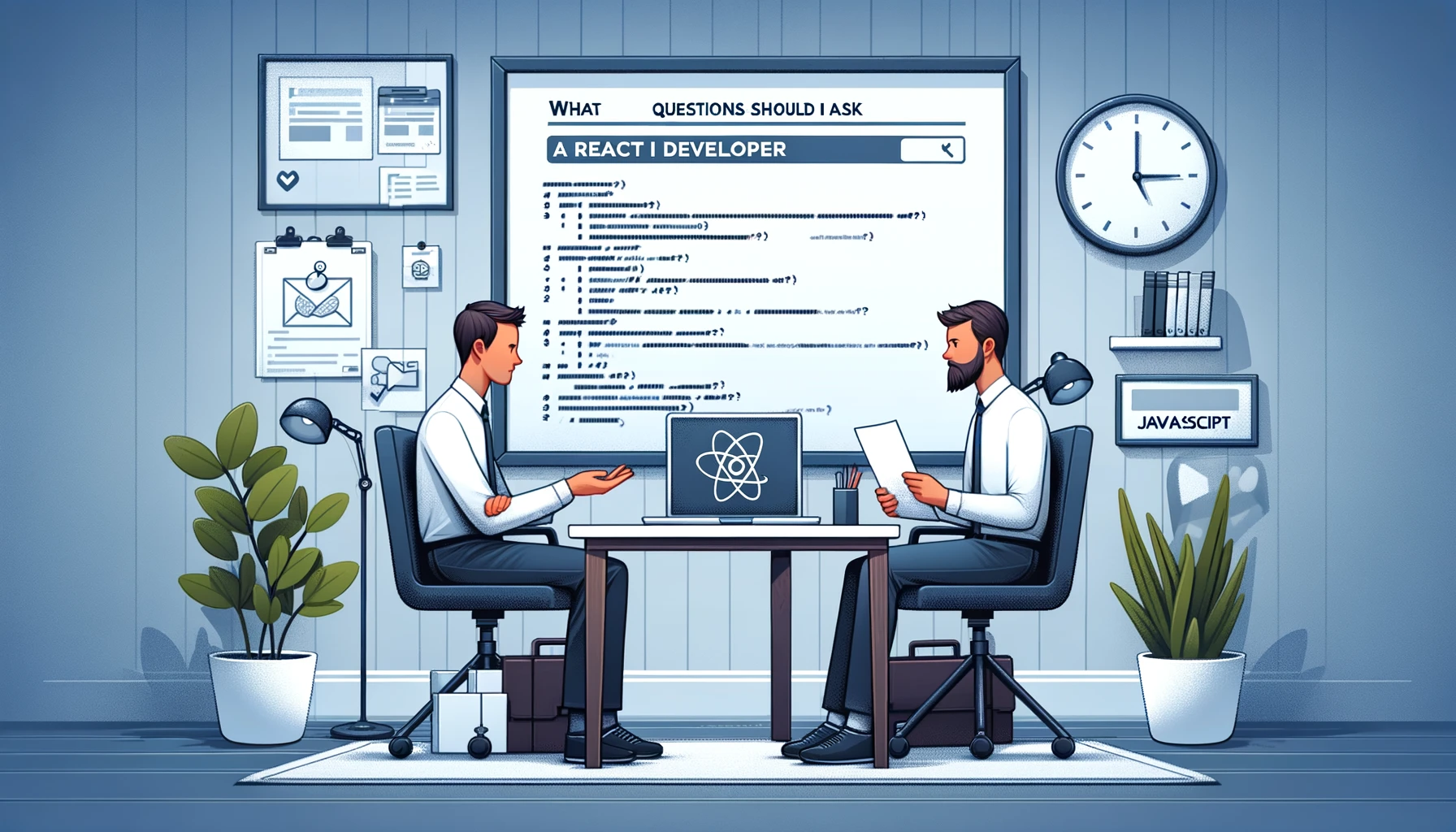What Questions Should I Ask a React Developer?
When it comes to hiring a React developer, knowing the right questions to ask can be the difference between a successful collaboration and a project that falls short of expectations. In the rapidly evolving world of web development, React has emerged as a go-to library for building dynamic user interfaces. As such, pinpointing a candidate's expertise in React is crucial. The questions you pose should not only gauge their technical skills but also their problem-solving abilities and experience with real-world scenarios. So, what questions should I ask a React developer to ensure they're the right fit for my project?
Introduction
React has become the cornerstone of modern web development, and hiring a developer who is adept at using this library is essential for any project's success. The right questions can reveal not only a candidate's technical prowess but also their adaptability and innovation when faced with challenges. In this article, we'll explore the key inquiries that will help you understand a React developer's depth of knowledge and their ability to contribute to your project effectively. Let's dive in and ensure your next hire is a perfect match for your development needs.
Understanding React Basics and Experience
When you're looking to bring a React developer onto your team, it's essential to start with the basics. A solid understanding of React's fundamental concepts is the bedrock upon which more advanced skills are built. Here's how to assess their grasp on the essentials:
React Fundamentals
Begin by asking about the foundational elements of React. You might inquire:
- Can you explain the virtual DOM and its advantages?
- How does JSX differ from traditional JavaScript?
- What are the key differences between class components and functional components?
Practical Experience
It's one thing to understand theory, but practical experience is where the rubber meets the road. Consider asking:
- Could you walk me through a React project you're particularly proud of?
- How have you managed component state in your past applications?
- Can you discuss a challenging bug you encountered in React and how you resolved it?
By starting with these questions, you'll get a sense of their technical knowledge and hands-on experience with React.
Delving into State Management and Lifecycle Methods
State management and lifecycle methods are critical for building dynamic and responsive applications. To understand a developer's expertise in these areas, you might ask:
State Management
- What strategies do you use for managing state in a large application?
- Can you explain the differences between local state, global state, and server state?
Lifecycle Methods
- How do lifecycle methods in React work, and can you give examples of how you've used them?
- With the introduction of hooks, how do you decide between using class components or functional components with hooks?
These questions will help you gauge the developer's ability to create efficient and well-structured React applications.
Assessing Knowledge of Component Architecture
Component architecture is at the heart of React's modular design. To assess a developer's understanding of this concept, consider asking:
Component Design
- How do you approach designing reusable components?
- Can you give an example of a compound component and explain its benefits?
Performance Optimization
- What techniques do you employ to prevent unnecessary re-renders in a React application?
- How do you optimize the performance of a React application?
These inquiries will reveal the candidate's ability to build scalable and performant React components.
Exploring React Ecosystem Familiarity
The React ecosystem is vast and constantly growing. To understand how well a developer navigates this ecosystem, you might ask:
Tools and Libraries
- What state management libraries have you used, and how do you choose one over another?
- Can you discuss your experience with routing in React applications?
Best Practices
- How do you ensure your React code follows best practices and coding standards?
- What testing frameworks have you used for React applications, and why?
These questions will show how well the developer keeps up with the evolving React landscape and integrates various tools into their workflow.
Evaluating Problem-Solving and Debugging Skills
Problem-solving and debugging are crucial skills for any developer. To evaluate these skills in a React context, consider asking:
Troubleshooting Techniques
- How do you approach debugging a React application?
- Can you describe a complex problem you solved in a React project and the steps you took to resolve it?
Proactive Problem-Solving
- How do you anticipate and prevent potential issues in your React code?
- What is your process for keeping up with new developments and deprecations in React?
These questions will help you understand the developer's ability to tackle challenges and stay ahead in their field.
Conclusion
Selecting the right React developer for your team is a critical decision that hinges on asking the right questions. By delving into their understanding of React basics, state management, component architecture, ecosystem familiarity, and problem-solving abilities, you'll gain a comprehensive picture of their capabilities. Remember to look for a developer who not only has the technical know-how but also fits well with your team's culture and values. With these questions in hand, you're well-equipped to find a React developer who will contribute to the success of your projects and drive innovation within your organization.
